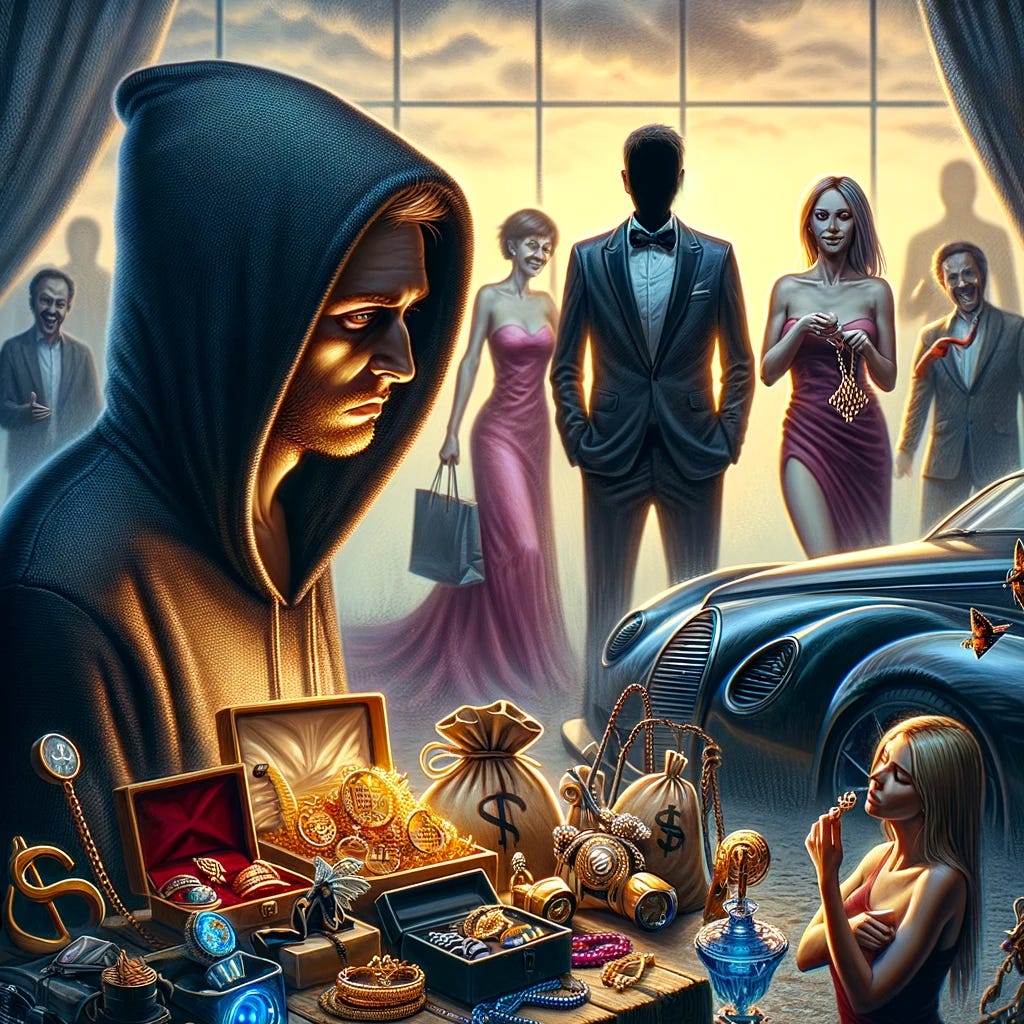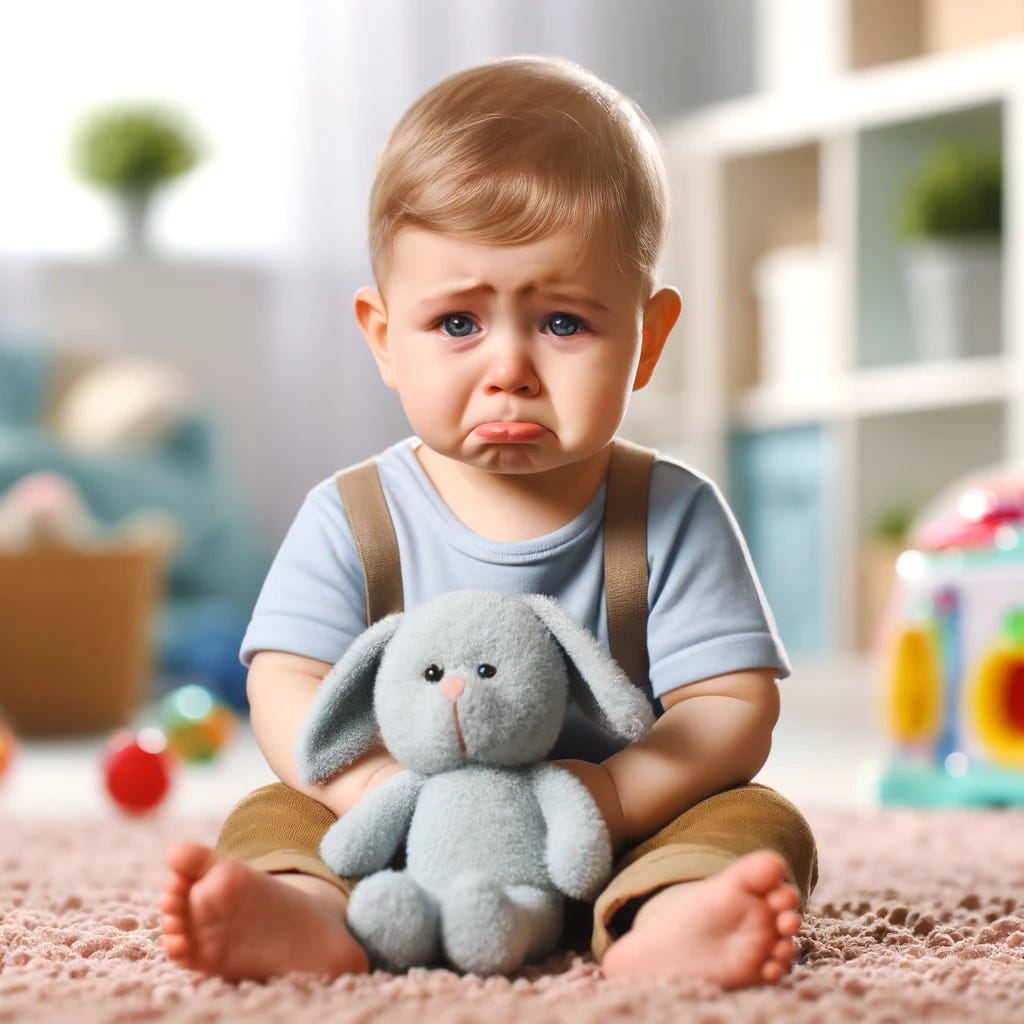Last night was the first time I went to bed early, and told my husband and our lover that they should play.
There have been other nights that they have gone to bed after me. I sleep early so that I can wake up to write this Substack. But last night was the first I explicitly invited it, the first when I didn’t have rules around what they did or how they invited me to be included.
I didn’t sleep much last night.
It wasn’t that my mind was filled with images. It wasn’t that I was scared of being left, abandoned, or unwanted. I just felt…
…what was it? Jealous?
I don’t think there are enough words in our culture for all the flavors of jealousy. We lump all these emotions into one category:
Fear of being upstaged
Fear of being abandoned
Wanting what someone else has
Not wanting someone else to have what you have
Wanting to be what someone else is
Feeling left out
Feeling suspicious
A vague feeling of unease
Other feelings lead to jealousy - anger, insecurity, betrayal, mistrust, uncertainty - and other feelings and actions come from it, like competition, resentment, power games, withholding love, setting rules, and acting impulsively.
Jealousy is the four-letter word of polyamory. The experience all of us feel we “should have gotten over by now”, the one we try to hide and finagle our way around.
It shows up in relationship. I also experience it in work and in friendships, usually whenever someone else has a thing, accolade, or person’s attention that I want.
Where does jealousy come from?
I tried to Go Science on this, but it said pretty expectable things like “‘[B]oth sexes are hypothesized to become distressed over sexual and emotional infidelity because both forms of infidelity provide important cues to the loss of reproductively valuable resources” (source). Basically, we get jealousy because our potential for babies is at risk.
This seems both true and useless, like being told that consciousness arises from signals in the brain. Yes, but why do I feel the way I do?
To me, jealousy comes from two places: Nature and Nurture.
In the Nature spot - we’re wired for predictability. We want to be able to build a future on what we know we have. Jealousy can be a reaction to the loss or potential loss of the future I have: I am jealous because the thing I “own” may be taken away. It can also be a reaction to the loss or potential loss of the future I imagine: I am jealous because I want to have or to be something that may not occur.
Jealousy, in this case, is a reaction to change. We are losing the future we have or that we imagine. We react by wanting to hold onto it.
IMO, the effort to maintain our mental status quo is one of the most powerful forces in the universe.
Versions of this reaction start young. Someone takes away a toy you’re holding as a baby, and you cry. You smack another child because they have a toy you want. You throw a tantrum because your mom is paying attention is someone else. What you have is at risk, and you let the world know that you Do Not Like This.
There are limited resources, and they might not come around to you.
If we didn’t have this reaction, perhaps we wouldn’t fight for the resources we need to live.
Then we have Nurture. I see this as two parts: what has been nurtured in us, and what we nurture ourselves.
What has been nurtured in us comes from our experiences. Perhaps I was not born afraid of losing my partner to a more beautiful person, but then I experienced partners wanting others more than they want me. Now I have that fear of loss. Someone who has never been upstaged may not fear it happening.
For me, experiences that have led to jealousy in relationship include partners:
Desiring others more than they desire me
Being dishonest about their desire for others
Breaking our relationship boundaries
Leaving me alone while they spend time with others
Honoring rules others have set with them
Dating people I don’t know
Some of these actions are obviously “bad”, like breaking relationship boundaries. But most of them are natural, like desiring others, spending time with others, and honoring rules. It doesn’t always take external “trauma” to cause internal trauma, especially for an anxiously-attached person.
The more these experiences happen, the more I react to even the idea of them occurring again. I design my life so that it takes serious negotiation before my partner can go on dates, make rules with others, date people I don’t know, or enter situations where they might find others to desire. I start dressing more and more desirably. I check in constantly to make sure everything is ok. (These are all actions I’ve taken in the past, and try not to anymore, with varying success.)
I try to limit change. Sometimes, the act of limiting it causes it, because what is repressed tends to explode.
Then there is what I nurture.
Keep reading with a 7-day free trial
Subscribe to Sara’s Substack to keep reading this post and get 7 days of free access to the full post archives.





